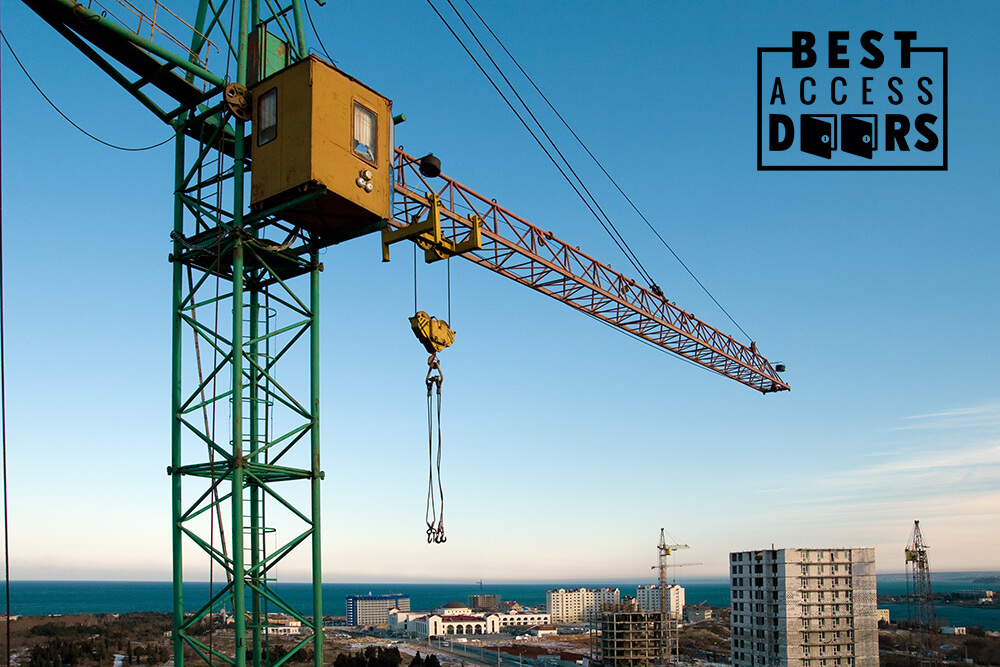Renting or Owning - Equipment for Your Consideration
Posted by Best Access Doors on 19th Jun 2019
In the construction industry, there is a general rule of thumb that if you do not use a piece of equipment more than 60% of the time, then it may be better to rent that particular piece of equipment. However, what one may want to also consider is, if they choose to rent the equipment will they have the same accessibility to the tool or machinery as to when they own it in-house?
To rent or to own, this is a question that many builders and contractors in the industry often face. There are pros and cons but more importantly, depending on the type of construction and heavy labor being done, it may be well worth the investment just to purchase the equipment versus renting.
At Best Access Doors, we understand the importance of equipment and value – as a supplier of access panels and doors, we know that contractors often decide based on the price or costs. Time is money, which is why we are sharing tips on renting versus owning but also equipment you may want to consider renting or owning for your business.
Tip 1
If you are using a tool or machinery for more than 60% of the time, or 176 days out of 365 – it may be worth considering and looking to purchasing this specific equipment. For example, if you are a contractor starting off in the industry, and you are finding yourself renting out bulldozer almost routinely for the work – it may be wise to consider the costs of renting versus owning.
Some contractors believe that renting is a more cost-effective approach; however, while that is true, if you are regularly using equipment such as bulldozer on your jobs, it may actually be costing your more to rent than to own.
This can be a tough decision to make, especially when heavy machinery equipment can cost in the tens of thousands – and for a company just starting, they may not have that collateral to pay. Look at the usage, audit how much and often is the machinery being used and what is being spent – if something such as a bulldozer is only used here and there and doesn’t impact the line of work, then renting may be the best choice.
Tip 2
There’s a third option to heavy machinery equipment – leasing. Imagine, you require a drywall lift for your next install of access panels and doors; however, your company doesn’t own one so you rent. All of a sudden, you are getting more work on installing drywall access panels and doors and are requiring the use of a drywall lift more frequently – do you rent or buy? Actually, there is a third option – leasing.
Leasing allows a contractor or construction company to have the best of renting and owning. Not to mention, when a contractor or company leases, the terms are usually less than 5 years – once this is up, it allows them to upgrade or update their machinery or equipment.
With leasing, there are fewer fees involved with owning, but there are also benefits of going this approach. Depending on the equipment and the supplier they may offer seasonal or exclusive leasing plans – which again, depending on the frequency of use of the equipment may be a good thing.
Tip 3
From excavators to forklifts and skid loader – these examples of equipment used on construction sites can go up to six-figures when it comes to owning them. What about renting them? Well, it depends on the job, and the period they would be used for.
For example, to rent a skid loader can range from $379 a day to $927 per week. It makes sense to go with a weekly rental; however, to purchase a mid-range skid loader can cost between $20 to $30 thousand. If we take the weekly rental costs, it would be cheaper to buy a skid-loader than to rent. Bearing in mind that a company or contractor can purchase it, but they are also able to house and store the equipment.
With heavy machinery, especially ones that can move or clear spaces, a cost that is sometimes overlooked is the cost for storage, maintenance and insurance. When one rents equipment to use, they are merely using it for the time needed, and then they return it – if they purchase the equipment, they now need to factor in where to store them.
Rent or Own, It’s About the Bottom Line
At the end of the day, contractors and companies need to look at the overall costs of owning versus renting equipment. They need to consider the costs of insurance, maintenance and storage. Not only are these important but if the machinery is one that is required by law to have a licensed individual to operate – this is something also to consider. Training can cost in the short-run; however, it can be an investment for the company in the long run.
The construction industry is ever evolving with new forms of technology and operation, equipment that once was used is suddenly being replaced by computer technology and other methods of operation.
To rent or to own, it all comes down to the bottom line and what a company or contractor is willing to pay for convenience and accessibility. If you own the equipment, the schedule is on your time; however, rent, and you are at the clutches of what is available and what is not.
For more helpful tips with tools or to read up on the construction industry, visit our blog page.
Share our story - the 2025 version is available

